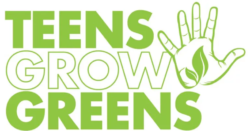Collab Lab 22 was focused on how can schools leverage a greenhouse/aquaponics facility to provide a rich set of authentic learning experiences for students. We structured the session as small group discussions focused on goals, the opportunities presented when these facilities are available to students, and what needs to be in place for educators to move forward.
Here’s what we came up with:
Goals
- Develop authentic learning experiences
- learn how to think systematically
- Create a micro-economy
- Tie into multiple areas within STEAM
- Create tangible applications to drive student engagement
- Pull in a new audience (of students)
- Create a focus/spur for community development
- Show students and colleagues what is possible
- Create memorable, hands-on experiences for students
- Aid local pantry
- Develop a common language
- Develop systems awareness
- Circle of life– acquire food; manage waste; your role
- Develop productive, self sustaining responsible adults– personal and work ethics
- Collaborate for learning and greater benefit to community
- Sustainable educational program
- Included in educational curriculum standards
- Equitable access to learning
- Build literacy for the value of science
Key Takeaway: The goal(s) for the facility should drive design
Opportunities
- Cash crops
- Allow students can see what one plant can provide
- Build transferable skills
- scientific illustration
- ecosystems
- problem solving
- environmental law/policy
- public speaking
- making decisions
- Tap into kids’ passions
- Experiential learning — e.g. things break
- Therapeutic effects/mindfulness
- Chance for students to see small successes
- Chance for students to collaborate with peers they would not otherwise interact with
- Learn culinary skills/safe food handling
- Build a connection to food/compassion for food systems
- See something new
- Experiment with sensors and controls
- Live monitoring of system: pH, water usage, temperature
- Build numeracy skills
- Ag marketing apprenticeship
- Healthy eating
- Cooking with kids
- Community engagement
- Add meaning to field trips
- Water/ponds in Milwaukee
- Tie in to solar energy
- Public policy implications
- Develop aquaponics curriculum to build understanding of
- systems thing
- food production
- scientific literacy
- Inventory of best practices to share and collaborate
- Accessible exposure to systems– e.g. turn the facility into a demonstration of a closed loop system
- Composting to teach waste management
- Start in elementary level to create mindset and culture
What is needed to move forward
- Cultural norms
- Buy-in from risk management, facilities & maintenance at the district level.
- A teacher champion (and a backup)
- A student champion
- To be around people who know how to do this
- Broad understanding of the value to students
- A network of schools working with greenhouses/aquaponics
- Revenue to cover costs/justify program (reduced need for field trips)
- Build the case for academic ROI
- Knowing how to measure behavioral outcomes
- Regulatory knowledge– how to navigate contracts
- Celebrate success
- Space
- To just start — learn from imperfections
- Fundraising to expand/upgrade
- Pioneers sharing their learning
- Partners with knowledge, experience, funding
- Colleagues who are motivated to take initiative
- Tell the story– market the exciting things that are happening to the wider community
- Create relationships to introduce accountability
Thanks again to The Commons for providing the space and to our featured participants for the experience and insight they brought to the discussion:
Charles Uihlein – Teens Grow Greens
Joe Jenna – Waukesha West High School
Sam Rikkers – Tiny Earth
Matt Ray – Fernwood Montessori (MPS)






